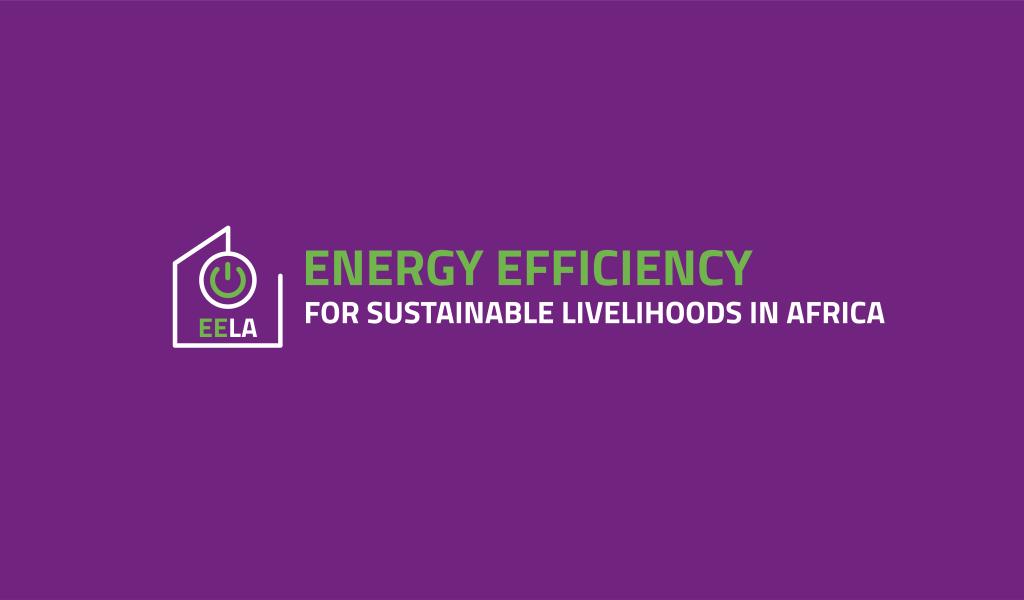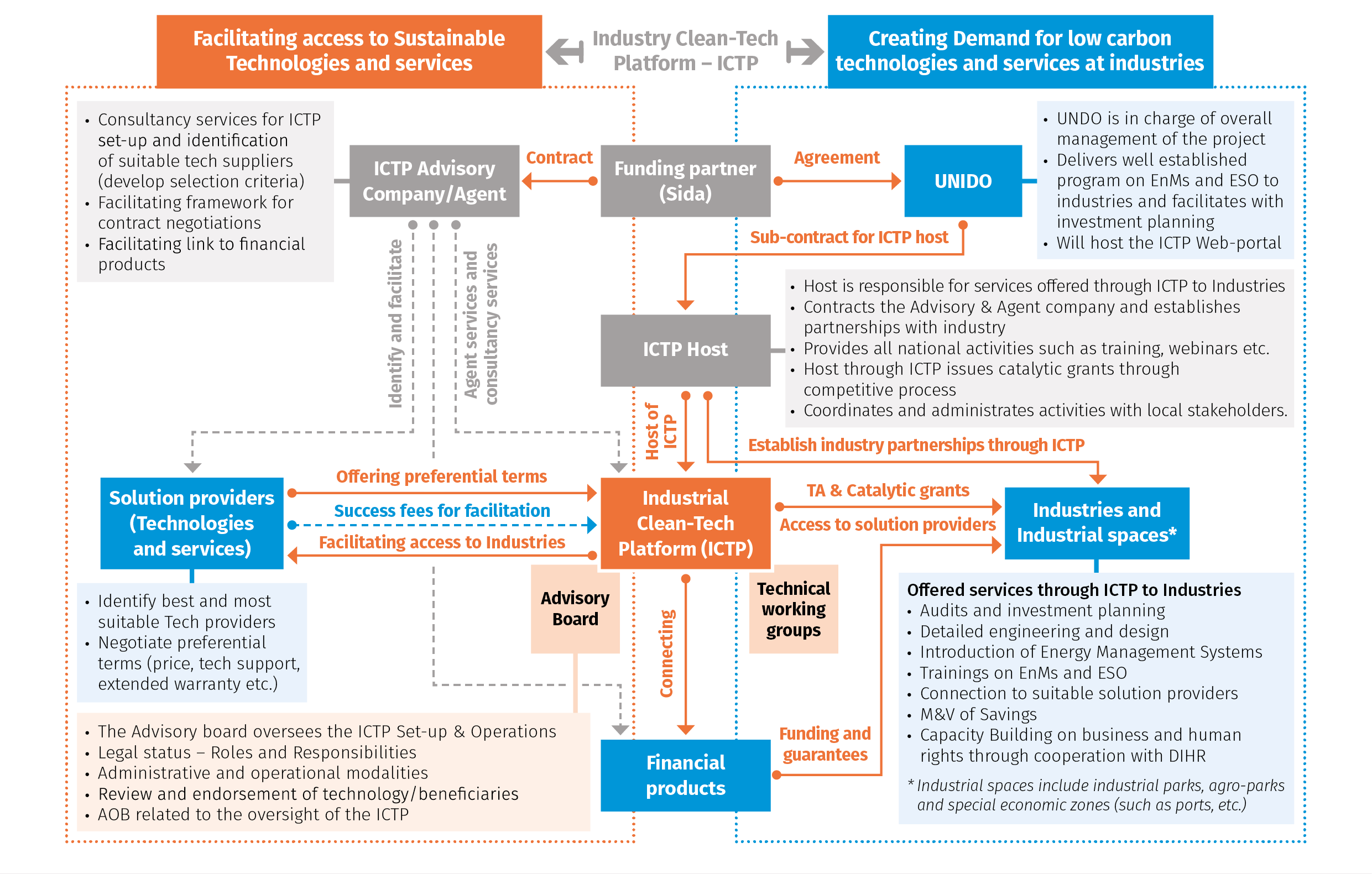News
Continuining the Success Story – EELA turns into a Programme

The Energy Efficiency for Sustainable Livelihood in Africa (EELA) Program, now in its second phase, continues the work started in EELA Phase 1. The EELA program seeks to promote inclusive and sustainable economic growth in Africa through integrated energy efficiency interventions. It focuses on transforming markets towards high-performing, affordable, and energy-efficient appliances, increasing energy efficiency investments in the industrial sector and promotes sustainable local value chains for energy-efficient products and services. It supports the set-up of a One-stop-shop Industry Clean Tech Platform linked with De-risking instruments at the national Industry Associations and promotes cooperation with high quality international Tech providers. The program includes regional interventions in the ECOWAS, EAC and SADC region through the EELA Regional project as well as multiple EELA Country Windows such as the EELA KENYA Country Window, the EELA ZAMBIA Country Window and the EELA ZIMBABWE Country Window.
The EELA regional project specifically aims to create the market and institutional conditions necessary for a sustainable and inclusive energy sector transformation. This involves enhancing regional policy harmonization and regulatory frameworks, building the capacities of key stakeholders, and supporting local energy efficiency markets through private sector development. The project assumes that energy efficiency is one of the quickest and most cost-effective pathways to accelerating sustainable development in Africa's growing regions.
The development impact of the EELA Program is to contribute to poverty reduction through improved access to sustainable energy for women and men, girls and boys, and to mitigate negative externalities of the energy system. EELA interventions aim to result in accelerating the demand and uptake of high-quality energy-efficient products, services and industrial equipment. This will result in a reduction of household expenditures and energy costs for businesses, enhancing the competitiveness of industries while reducing their carbon footprint. It targets the enhanced uptake of productive use equipment to improve livelihoods and reduce post-harvest losses through high performing and energy efficient on and off-grid cooling and agro-processing equipment. Particular focus is placed on the implementation of various innovative business models, offering cooling, lighting and more broader energy as a service. This is premised on the assumption that energy efficiency is one of the quickest and cheapest ways to accelerate sustainable development in these growing regions.
Continuing the EELA Success Story
After this first phase, the EELA regional project is turning into a programme. Additionally, to the continuation of the EELA regional project, three new country windows will be added in Kenya, Zambia, and Zimbabwe. A close collaboration between the country windows and the regional project is foreseen to share lessons learned and benefit from shared project resources.
EELA Country Windows
The EELA Country Windows in Kenya, Zimbabwe, and Zambia share the goal to stimulate inclusive and sustainable economic growth in the country through an integrated Energy Efficiency (EE) project targeting the accelerated uptake of EE lighting and appliances, linked to the Energy Efficiency for Sustainable Livelihoods in Africa (EELA), as well as targeting investment in the low-carbon transformation of the industrial sector and in local value chains, e-waste management and related capacity building and awareness raising. While all EELA country windows share the common objective of enhancing EE to promote sustainable livelihoods in Africa, each window is tailored to address specific local needs and priorities. EELA country windows are essential in addressing unique national challenges in EE, while aligning with the broader regional goals of EELA.
Each country deals with distinct energy demands, policy environments, and market conditions which need customized interventions. Thes country windows enable the targeted deployment of EE technologies, the development of regulatory frameworks, and the strengthening of public-private partnerships. They also support the localization of EE standards and practices, maximizing the impact of regional harmonization efforts and overcoming barriers such as low awareness, limited technical expertise, and restricted access to finance. The integration of country windows aims to drive inclusive economic growth, reduce poverty, and support sustainable development.
EELA Industry Clean Tech Platform (ICTP)
All three of the country windows will pilot the EELA Industry Clean-Tech Platform (ICTP). The EELA Industry Clean-Tech Platform will be launched in multiple countries to facilitate private sector investments in sustainable energy solutions for industries. This platform provides services to stimulate demand for low-carbon technologies and solutions, supporting technology transfer, demonstrations, and access to financing.
The ICTP is designed to accelerate the adoption of low-carbon technologies and enhance energy efficiency in key industries. It serves as a central hub offering industries access to resources such as technology transfer, training, and financing to support the shift toward cleaner production methods. The platform addresses industry challenges in energy management, including outdated technologies, inefficient processes, and limited access to advanced clean technology solutions. By offering a comprehensive "one-stop-shop" for industrial energy needs, the ICTP aims to boost competitiveness, reduce greenhouse gas emissions, and promote sustainable economic growth. Its implementation in the pilot countries will establish replicable demonstration projects, driving a wider transformation toward cleaner and more resilient industrial sectors across Africa.

This graphic illustrates how the Industrial Clean-Tech Platform operates to facilitate access to sustainable technologies and services. We thank Sweden for funding this program, as well as our implementing partners—SACREEE, EACREEE, the Swedish Energy Agency, CLASP, Ark Energy, and GloFin Advisory AB. The EELA project team looks forward to building on the progress made over the past years.
Key Project Details
Budget: (EELA Regional, EELA Kenya, EELA Zambia and EELA Zimbabwe) ~20 Mil EUR total
Funder: Swedish International Development Cooperation Agency - SIDA
Key National Counterparts: Ministries of Energy, Industry and Environment, Utilities and Regulators, Industry Associations, Standard Bodies and Testing Laboratories
Implementing Partners: SACREE, EACREEE, Swedish Energy Agency, CLASP, Ark Energy, GloFin Advisory AB
Contact Details: Ms. Karin Reiss-Haimbala, Industrial Development Officer, Decarbonization and Sustainable Energy Division, UNIDO, k.reiss@unido.org